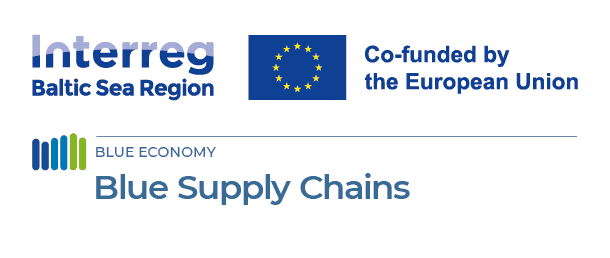
Stena Line represented Blue Supply Chains at the Scandria Alliance Talk
20 October 2025
Fewer infrastructure bottlenecks and better cross-border coordination are needed. At the same time, the resilience of transport networks is in everyone’s focus due to the current geopolitical situation.
During a joint webinar of the Scandria Alliance and the Blue Supply Chains project, speakers explored the critical role of combined freight transport in building sustainable and resilient supply chains .
They discovered how integrating different modes of transportation optimizces efficiency, reduces carbon emissions, and enhances logistical flexibility in the Baltic Sea Region and along the ScanMed Rail Freight Corridor.
Combined freight transport is crucial for sustainability and resilience as it optimizes resource use, reduces emissions, and strengthens supply chain flexibility by integrating multiple transportation modes. The rail-ferry is a very good example to support a resilient transport system in the Baltic Sea region. It is sustainable and able to carry heavy and long cargo.
Environmental benefits of combined transport, innovative technologies, regulatory frameworks, and real-world case studies of successful implementation have been showcased and discussed.
Speakers
- The Rostock-Trelleborg rail ferry link
Katrin Verner, Freight Commercial Manager, Stena Line - The Green Jutland Corridor
Michael Langballe, Head of Transport & Logistics/PSO, Port of Hirtshals - The ScanMed RFC initiative for a combined transport service between Malmö and Maschen: poteltial and challenges
Kosta Tsesmetsis, CRM Manager, ScanMed RFC - Moderator: Ralf-Charley Schultze, President of International Union for Road-Rail Combined Transport (UIRR)





